America Believes in Polish Startup: Million Dollars for Lab with Its Own Data Factory

- A Polish start-up has won $1 million in an international competition and may partner with global player WR Grace. This opens the door to the global chemical industry.
- Molecule.one wants to change the way we design drugs, among other things. It not only produces its own chemicals but also creates its own AI models and builds proprietary databases.
- Most laboratories ignore failed experiments. A Polish start-up is capitalizing on them, treating them as a source of knowledge for AI systems.
- According to the founders, most of their clients are US companies. Molecule.one's goal, however, is to bring some drug production back to Europe. Automation is expected to help.
"The second part of 'Dune' begins with a black screen and the words 'Power over spice is power over everything.' I really like this scene; it accurately reflects what data is today," says Piotr Byrski, founder of the start-up Molecule.one.
He admits that access to a wealth of structured information on chemical reactions has given his company an international advantage. It just won $1 million in the prestigious Standard Industries Chemical Innovation Challenge .
In addition to the financial reward, the victory opens up the possibility of cooperation for the Polish company with WR Grace, a global manufacturer of industrial chemicals. The start-up will engage in activities related to the optimization of production processes, which could be the beginning of a long-term partnership.
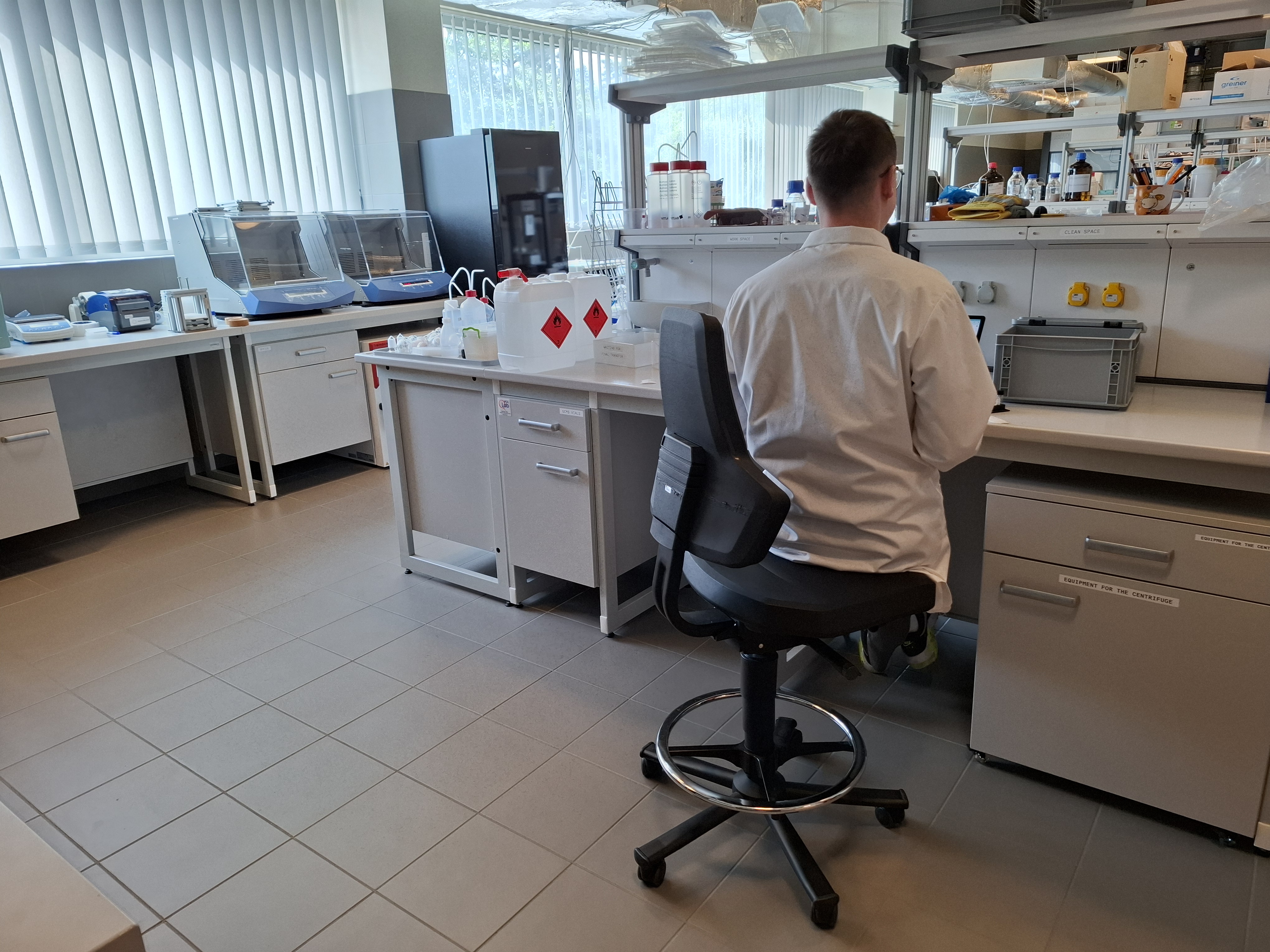
The heart of Molecule.one beats in Dziekanów Leśny. This quiet town near Warsaw, nestled in the Kampinos Forest, is home to the start-up's founders. As the startup's founders say, they couldn't find space for a chemistry laboratory anywhere in Warsaw. Only Cardinal Stefan Wyszyński University, located in Dziekanów, had suitable space. Offices in Warsaw were rented.
Although the startup employs around 30 people, the laboratory is key. "Let's say a researcher comes to us looking for a cure for a specific cancer. They have a hypothesis about a protein that needs to be blocked, but they don't know the structure of the potential drug. By using our proprietary AI platform, we can design proposals for thousands of possible chemical structures. These will include not only examples already described in the literature, but also completely new structures that the system has modeled itself. And that's not all, because we can later physically produce many of them ourselves for testing," explains Byrski.
Laboratory workers compare chemistry to cooking—designing a reaction in a computer is like coming up with a recipe. The difference is that the range of possible "dishes"—that is, molecules that can be created—is incomparably wider than in the kitchen.
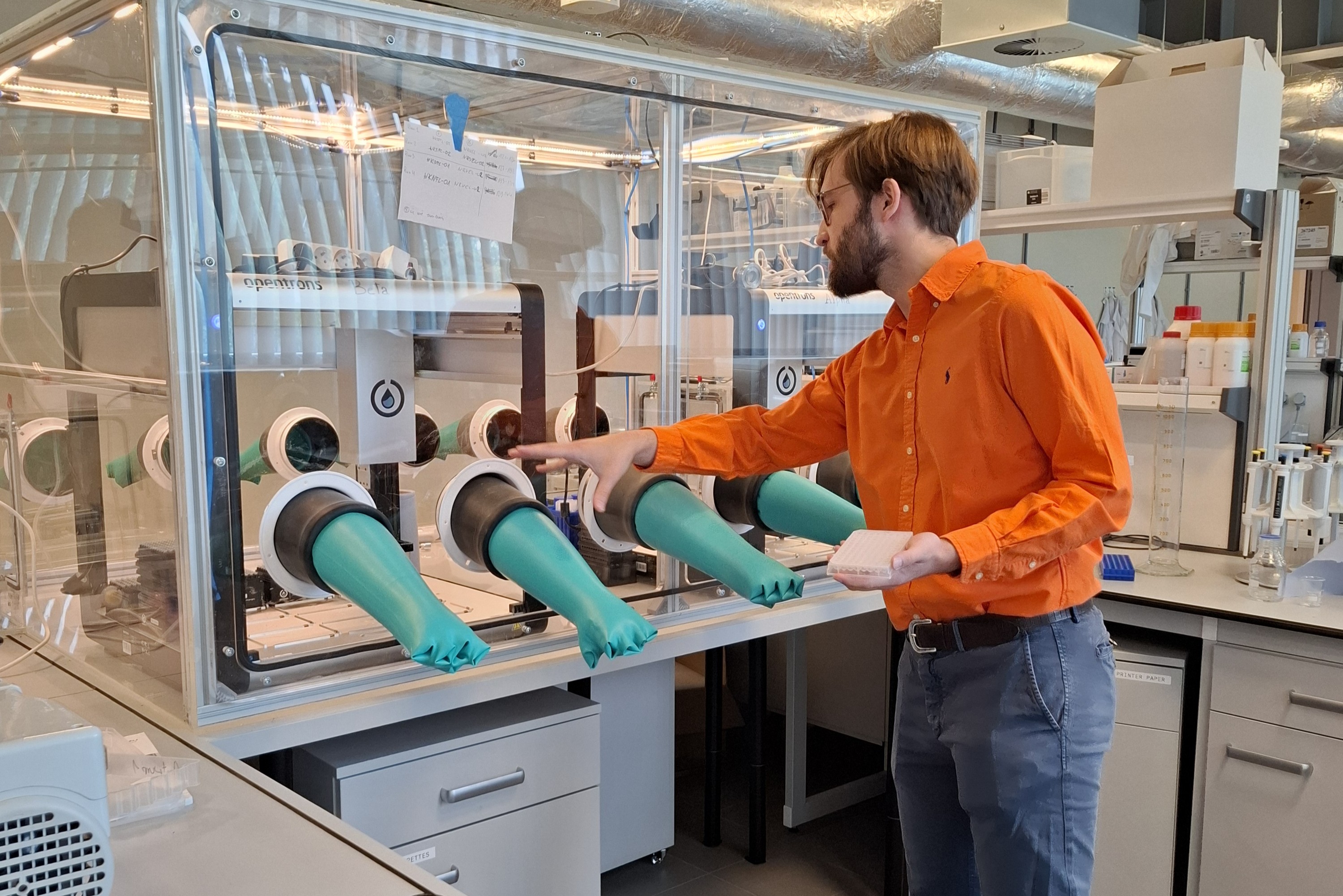
Researchers hope their technology will streamline the search for new drugs, among other things. However, they're not stopping at just custom reactions. Thanks to process automation, they perform and analyze several thousand experiments in their laboratory each week . This is accomplished using equipment designed specifically for the company's needs.
To scale the laboratory, the team secured a grant from the Polish Agency for Enterprise Development. Much of the equipment was based on proprietary designs, such as the glovebox, a housing for laboratory robots that allows for anaerobic conditions to be maintained within it when necessary. This is where most experiments are performed.
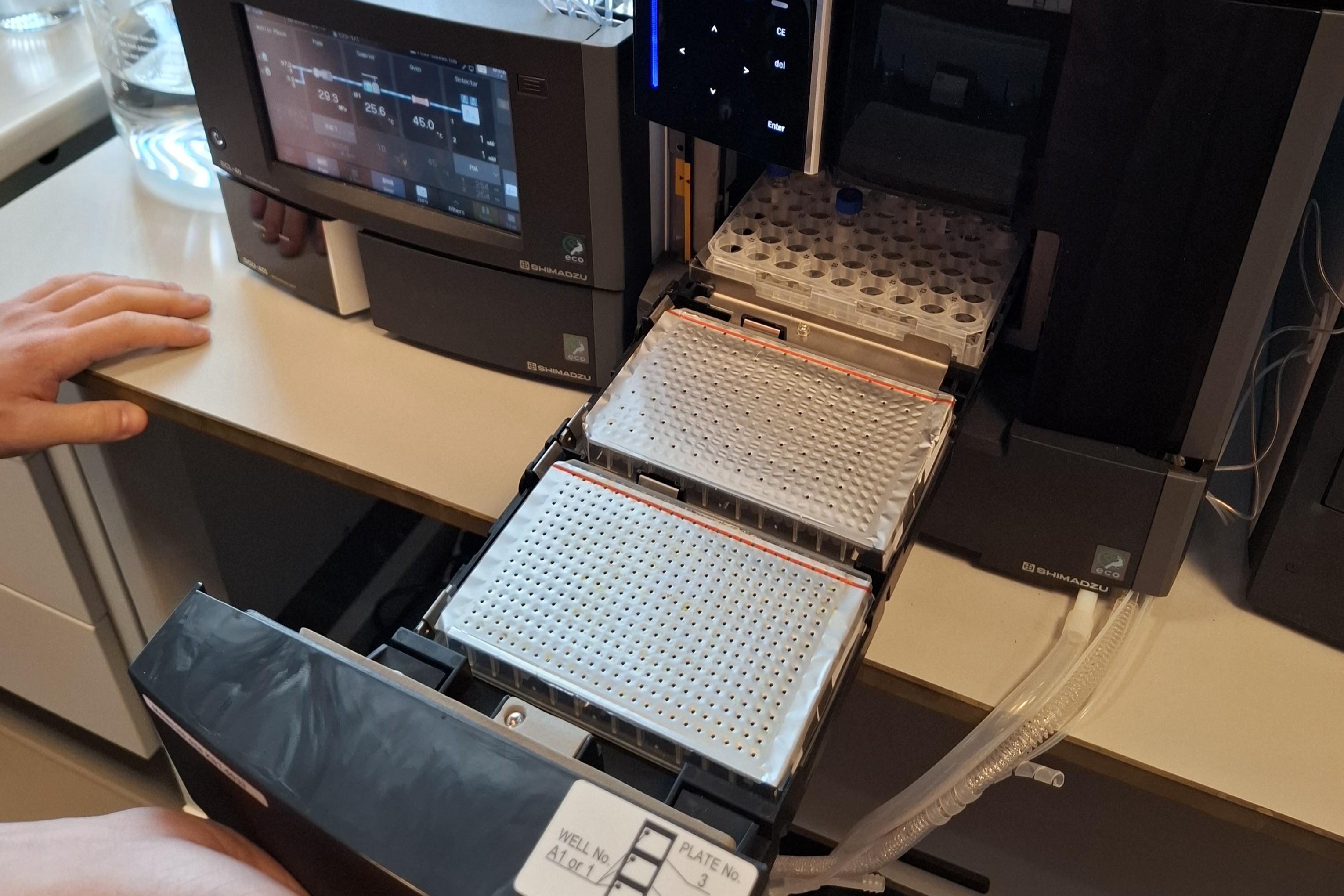
Why all the hassle? The team not only creates AI models and obtains chemicals, but also independently generates the experimental data that powers these models. And this—apart from automation—is its main market advantage.
"In normal laboratories, most experiments fail, but no one records such failures. For us, these failed attempts are equally valuable if they are properly described and analyzed," says Greta Klejborowska, who is responsible for Molecule.one's scientific partnerships.
He explains that the company has effectively created its own "data factory." "The better the database, the smarter the system will be and the fewer errors it will make in the future," he emphasizes. He adds that the team strives to maintain a constant failure rate of approximately 50% of experiments, simply to feed data about them into the systems.
"Because we have control over the entire reaction process, we can create very high-quality databases. We started traditionally, relying on ready-made data, but that was definitely not enough for us," explains Byrski.
He adds that developing solutions from scratch has become part of the company's philosophy. "We never start by using pre-made ideas. We try to do our own research," he says.
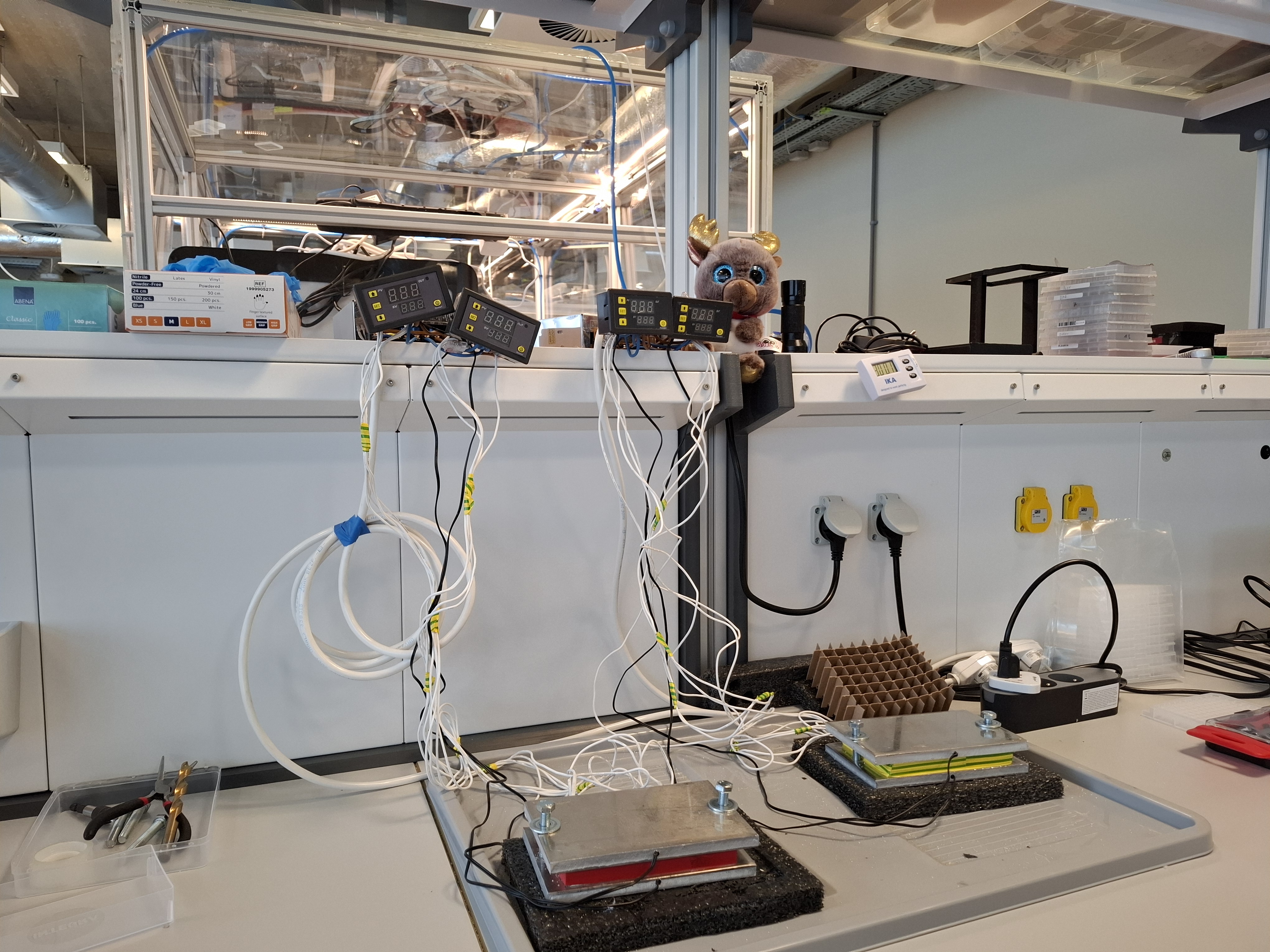
The idea for a platform streamlining chemical synthesis originated during their studies. Both Byrski and company co-founder Paweł Włodarczyk-Pruszyński had degrees in chemistry and medicine. For the first two years (the project launched in 2016), they gathered feedback from the market and considered whether to fully commit to the startup. In 2018, the company raised approximately $385,000 from business angels and the Berlin-based fund Sunfish Partners.
As Piotr Byrski admits, the founders were initially told that the concept of integrating chemistry and AI was unrealistic. "Our first experimental chemist said at the interview that he came just to tell us that," he recalls.
Within ten months, the company had built a prototype solution . When the pandemic broke out, they were ready to make the platform available to researchers fighting COVID-19. "At the same time, we were looking for further funding, and all our conversations were held on Zoom. To this day, I haven't personally met one of the people who invested the money back then," Byrski recalls.
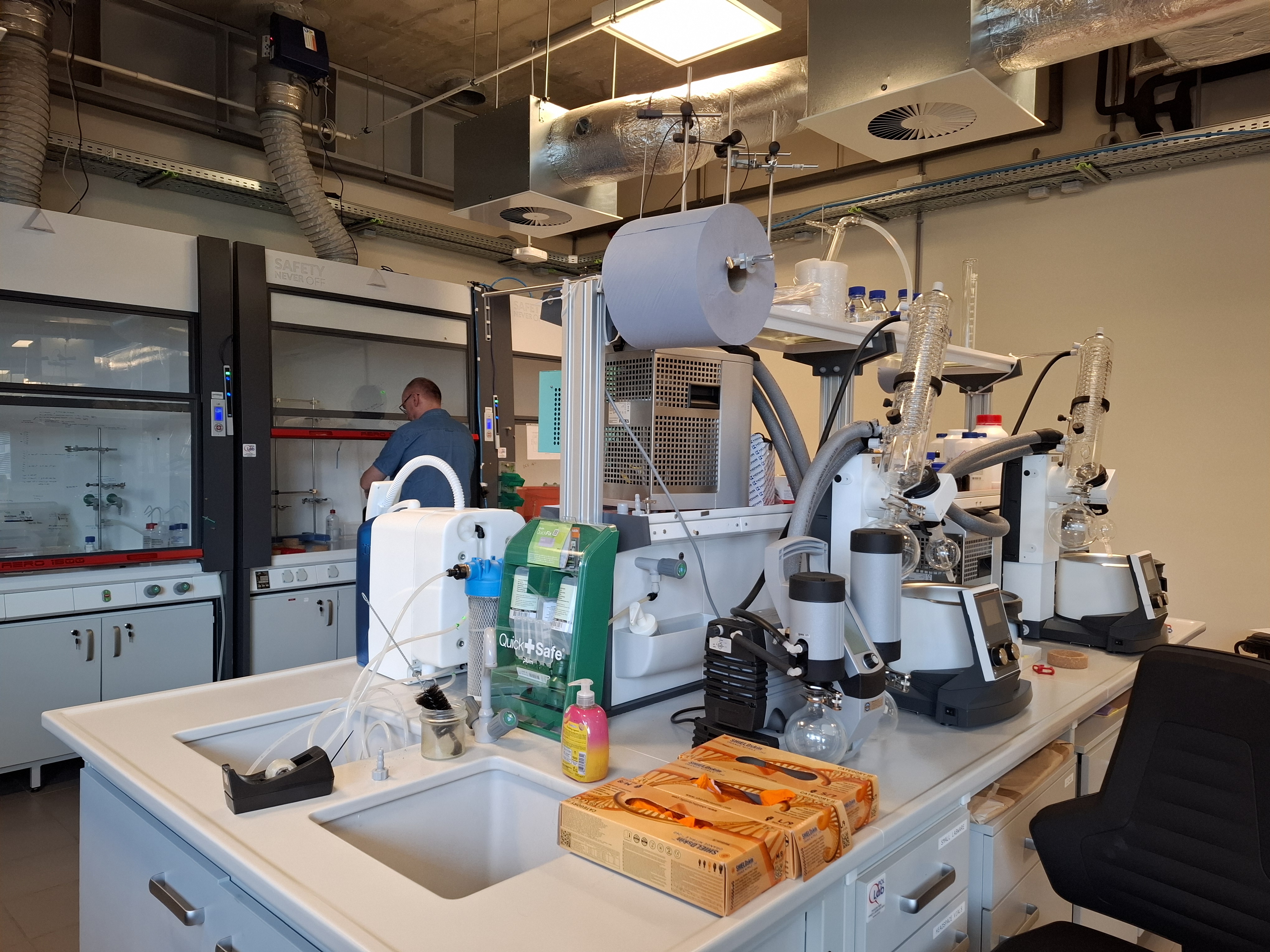
As the co-founder of Molecule.one points out in an interview with WNP, most of the company's clients come from the US. Very few come from Europe. In his opinion, this is just one illustration of a broader problem: new drug development takes place almost entirely outside the Old Continent , primarily in China and the US.
"Personally, I'm concerned about this statistic. In an era of creeping trade wars, I'd like to see some production return to Europe. We'd like to be part of this process, because automation is key to reversing this trend. Only through automation will we be able to restore at least part of the drug production chain to Europe without drastically increasing costs," Byrski notes.
wnp.pl





